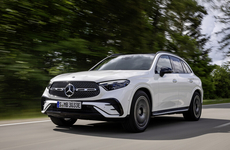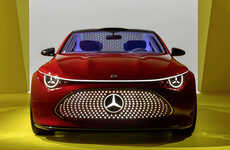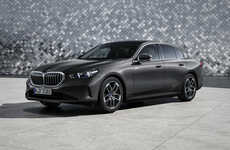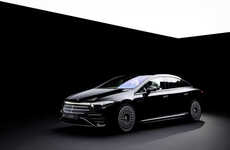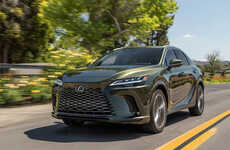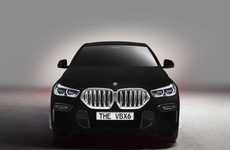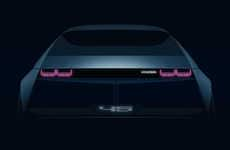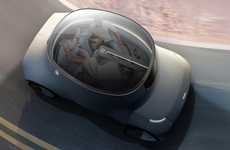
Mercedes Has Revealed Its A-Class and B-Class New Plug-In Hybrids
Daniel Johnson — August 26, 2019 — Autos
References: mercedes-benz & engadget
Mercedes has revealed its new A-Class and B-Class cars, which are both plug-in hybrids. Both the A250e and the B250e feature a near-identical design to their combustion engine counterparts. The plug-in hybrids have the same 1.33L four-cylinder engine, but also have a 75kW motor that can increase the car's range by 47 miles.
The A-Class car is currently available in Europe for a $40,980 price point for the hatchback version, and the sedan version is slightly more expensive with a $41,376 price pint. The B-Class model will be available within a few weeks according to Mercedes.
The A-Class vehicle is able to accelerate to a speed of 62MPH within 6.6 seconds, while the B-Class can reach that speed within in 6.8 seconds. The hybrid make of the car will also not restrict the car's cargo space.
Image Credit: Mercedes
The A-Class car is currently available in Europe for a $40,980 price point for the hatchback version, and the sedan version is slightly more expensive with a $41,376 price pint. The B-Class model will be available within a few weeks according to Mercedes.
The A-Class vehicle is able to accelerate to a speed of 62MPH within 6.6 seconds, while the B-Class can reach that speed within in 6.8 seconds. The hybrid make of the car will also not restrict the car's cargo space.
Image Credit: Mercedes
Trend Themes
1. Plug-in Hybrid Cars - The emergence of plug-in hybrid cars like the Mercedes A-Class and B-Class presents opportunities for automakers to combine combustion engine technology with electric motors for increased range and efficiency.
2. Increased Range - The integration of a 75kW motor in plug-in hybrid cars allows for a significant increase in range, providing a disruptive innovation in the automotive industry by addressing the limitations of electric vehicles.
3. Seamless Design - The near-identical designs of plug-in hybrid cars to their combustion engine counterparts offer a seamless transition for consumers, allowing them to adopt hybrid technology without sacrificing their preferred aesthetics.
Industry Implications
1. Automotive - The automotive industry can capitalize on the growing demand for plug-in hybrid cars by investing in research and development to improve range, efficiency, and design.
2. Electric Vehicle Charging Infrastructure - The emergence of plug-in hybrid cars highlights the need for an expanded electric vehicle charging infrastructure to support the growing number of hybrid and electric vehicles on the road.
3. Automotive Manufacturing - Automotive manufacturers can seize the opportunity to adapt their production processes to include the manufacturing of plug-in hybrid cars, tapping into a new market segment and catering to environmentally conscious consumers.
1.4
Score
Popularity
Activity
Freshness


